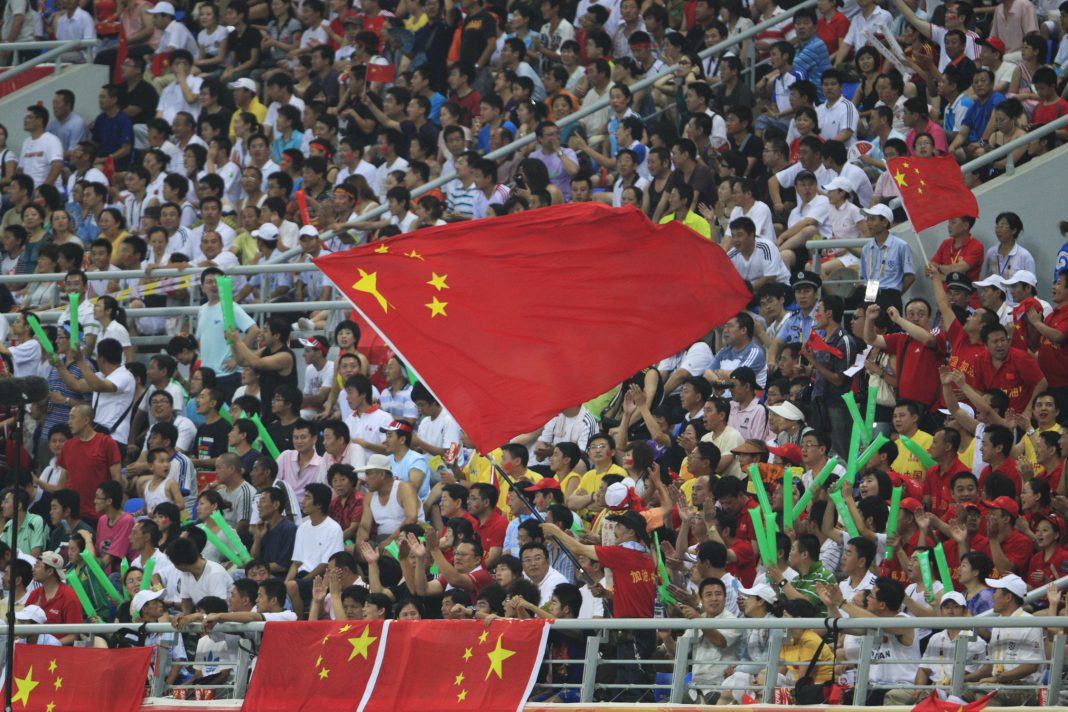FIFA has disclosed that it has signed a Memorandum of Understanding (MoU) with the Chinese Football Association (CFA) which will help boost football development in China.
Furthermore, collaboration between the two bodies provides an opportunity for FIFA to harness the development potential of football in the People’s Republic of China over the course of the upcoming years.
“It must be a priority of FIFA to ensure that the world’s most popular game keeps growing and developing in the world’s most populous country,” said FIFA president Gianni Infantino
“Chinese football has been making strides for a long time now, and we are sure that, with this agreement, FIFA is in the position to provide a very tailored assistance for the game to evolve even further in China.”
The MoU acts as a clear signal of intent for future collaboration between the FIFA and the CFA which will see them enhance football structures, management and technical aspects related to football in China.
FIFA has said that the agreement focuses on five key areas of collaboration: governance structure of the CFA, technical development at all levels, refereeing, professionalisation of football and event management.
Acting CFA president Du Zhaocai explained: “As a big nation committed to the development of world football, China is willing to make its contributions while being integrated into the international football family.
“We look forward to receiving the continuous support from FIFA for our football development, which will further promote the development of the game worldwide.”
The signing of the agreement concluded a day of operational meetings involving staff members of FIFA and the CFA, who engaged in sessions of knowledge exchange covering different areas such as technical development, media and public relations, governance and human resources.

Growth of football in China
A long-term football development outline was first presented in 2011, inspired by self-confessed, football-mad President Xi Jinping.
The ultimate goal is to develop Chinese football into a dominant power in Asia by 2030, and a world elite competitor two decades later.
Jinping has openly stated his footballing desires and has said he has three World Cup dreams for China: to participate again in the finals, to host the World Cup finals and, eventually, to become World Cup winners.
There is already growing speculation that the country might lodge a bid to host the 2030 World Cup as a trial run ahead of a further bid to stage the 2034 edition.
The Chinese Super League in recent years has made astronomical strides forward in terms of monetary revenue and notoriety thanks to high-profile names such as former Chelsea playmaker Oscar, Cedric Bakambu and Paulinho.
However at grassroots and international level, China is still lagging behind many other Asian countries – sitting 74th in the FIFA world rankings following a 3-0 quarter-final defeat to Iran at the AFC Asian Cup in January.
In an effort to accelerate the development of football in China, Beijing-based multinational conglomerate Wanda Group is set to invest nearly $300 million into a new Dalian youth football training base.
After selling its stake in Atlético Madrid, the company now want to pump money back into “China’s famous football town.”
The new Dalian youth training base will feature a cluster of 23 football fields for training and competition purposes, among which 12 are standard fields, six floodlit fields, two fields with under-soil heating system, two indoor fields and one competition field with a 5000-seat stand.
The training base – scheduled to open in December 2019 – will consist of five buildings equipped with “world-class” accommodation, teaching, rehabilitation, conference and other supporting facilities.
Wanda claims that construction of the base will not only directly benefit China and Dalian, but it will also make the base “one of the world’s top football training facilities.”
























